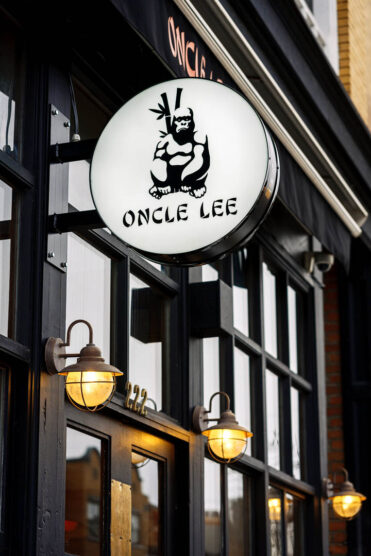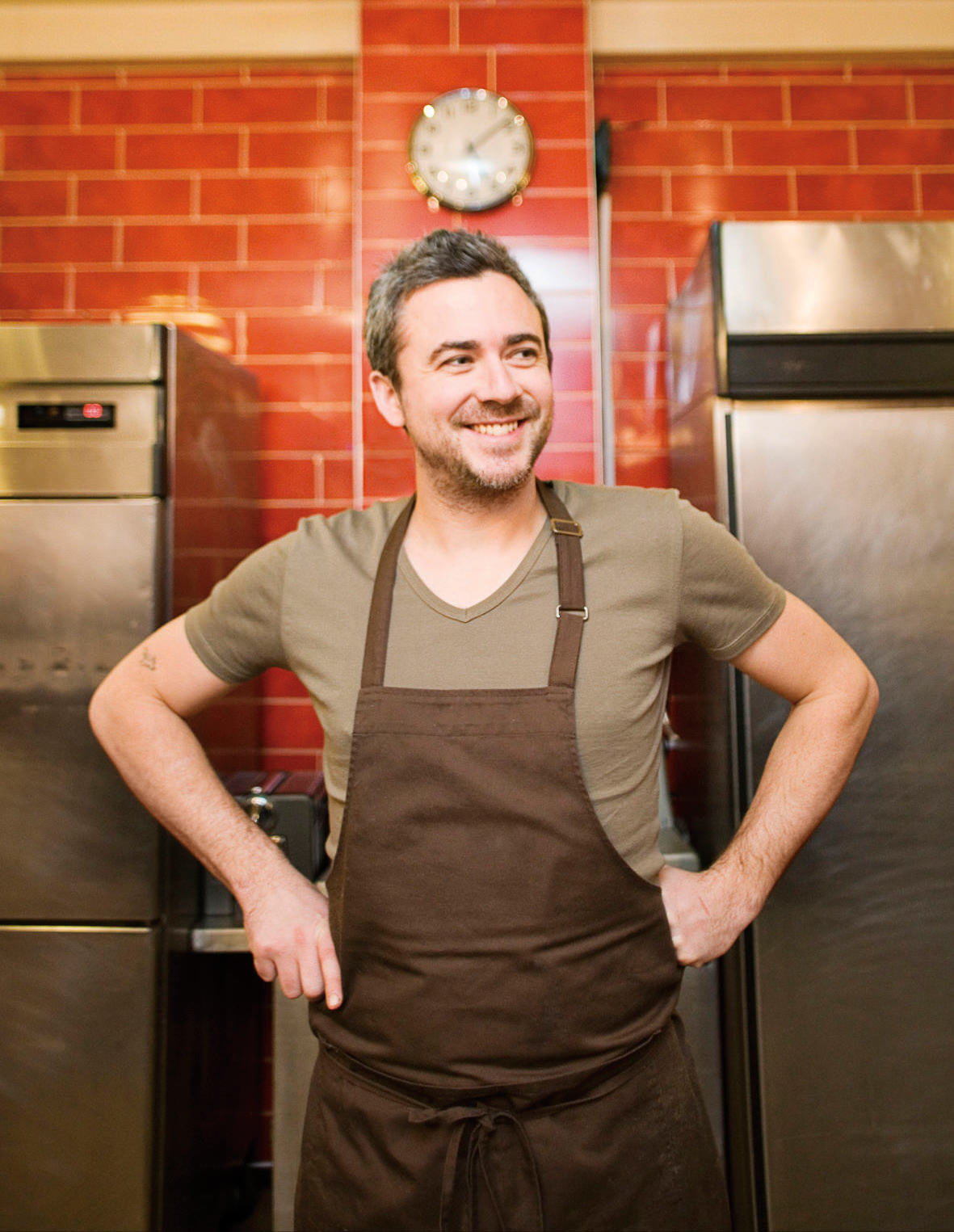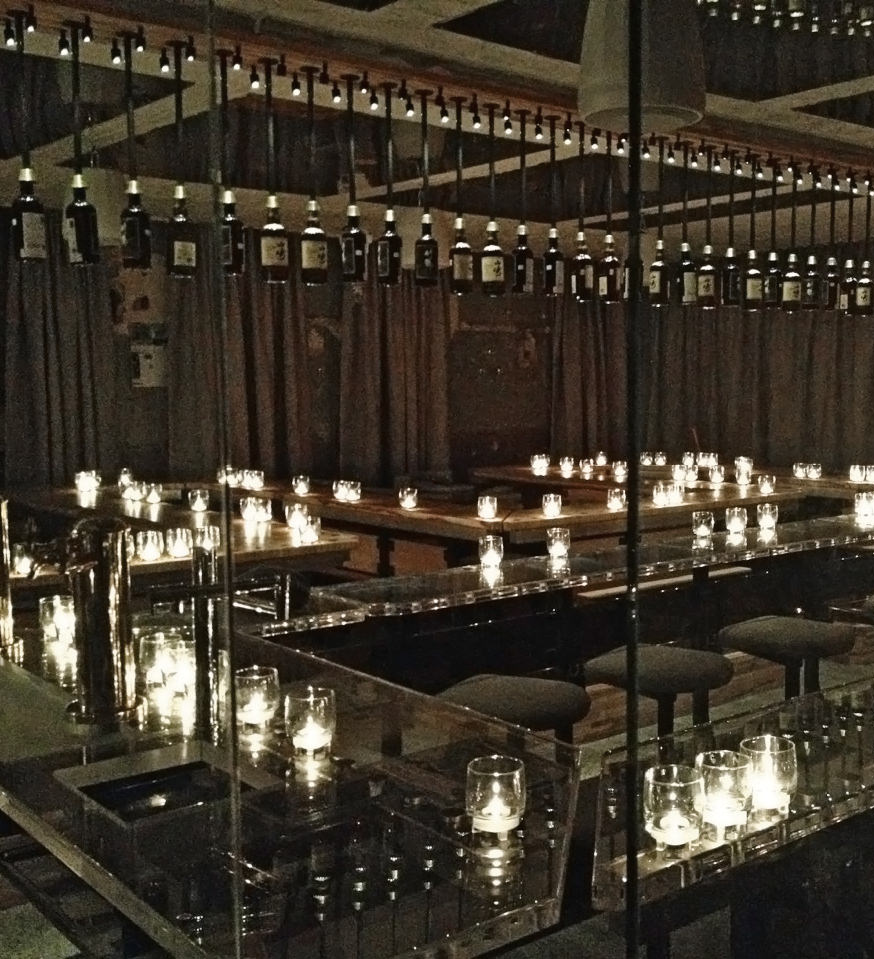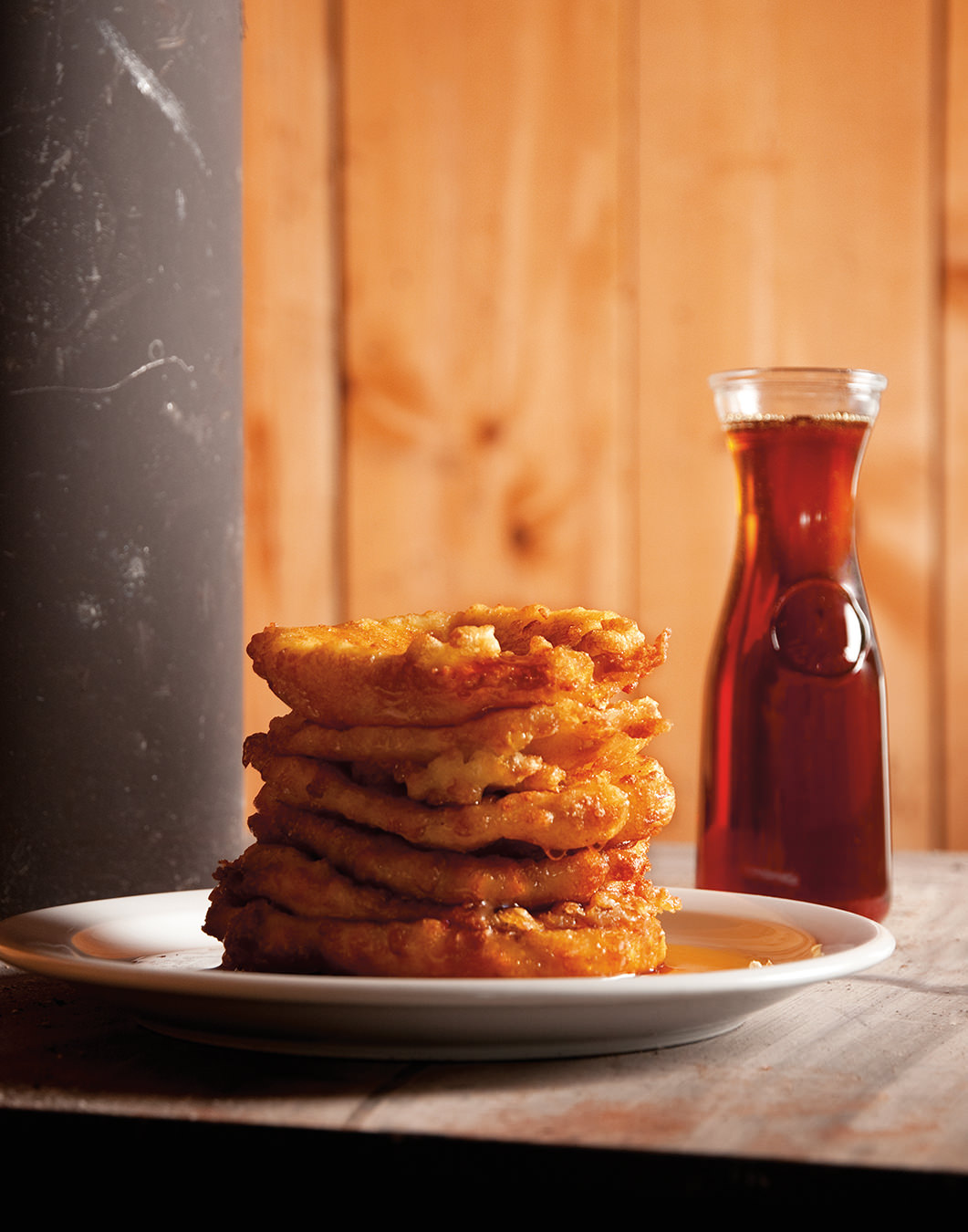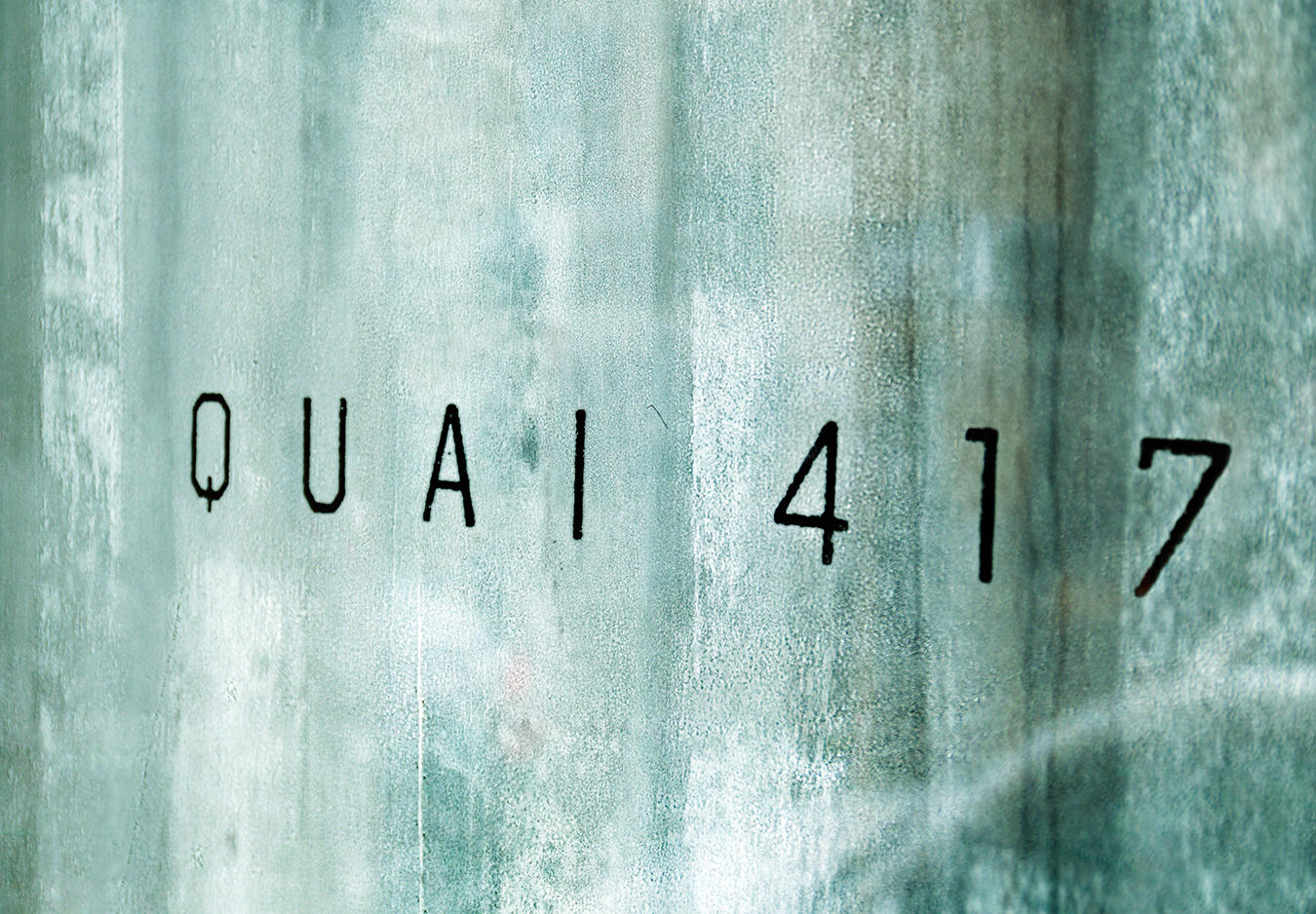Andersen Lee, the Chef of Montreal’s Oncle Lee, on Making the World’s Best 50 List and Rediscovering His Roots
The wunderkind chef combines Chinese cuisine with Montreal hospitality.
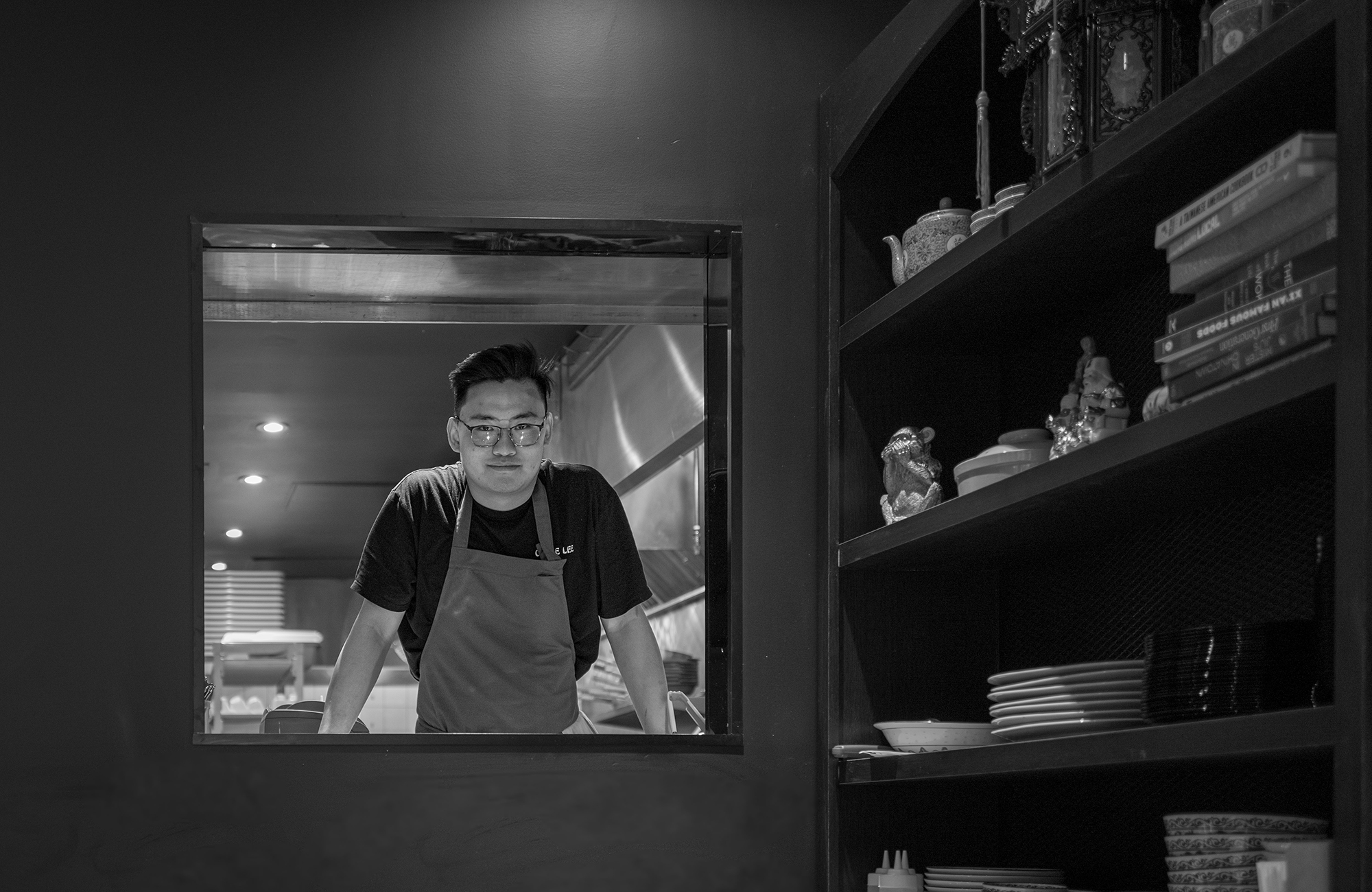
It wasn’t until Andersen Lee took a trip to San Francisco in 2018 that the now-25-year-old wunderkind behind Oncle Lee, one of Montreal’s buzziest restaurant openings in recent history, realized just how mesmerizing high-quality Chinese food can be. While he grew up eating his Hong Konger father’s and Taiwanese mother’s traditional cooking, he credits a meal at Mister Jiu’s, the Michelin-starred Cantonese restaurant from acclaimed chef Brandon Jew, with kickstarting his desire to open a Chinese restaurant. “I went to San Francisco on a bit of a food pilgrimage,” Lee says. “Ate at a few three-star and two-star restaurants, and then on my last night, I stumbled into Mr. Jiu’s. That’s when I realized I wanted to open a Chinese restaurant.”
Before and after that fateful meal, Lee has followed the typical trajectory of highly talented young chefs, a rapid ascendance propelled by lessons learned during gruelling shifts at local fine-dining establishments and stages at much-ballyhooed restaurants in international food capitals. After graduating from culinary school, Lee took his classical training first to Montreal’s Bouillon Bilk, the white-tablecloth French restaurant at the core of Group Bouillon Bilk, which Oncle Lee is now the fourth member of. While there, he earned a scholarship from 50 Best—the hospitality-ranking brand equalled in esteem by only the Michelin Guide—that allowed him to stage for six weeks each at restaurants around the world: Core by Clare Smyth in London, Quintonil in Mexico City, and Odette in Singapore.
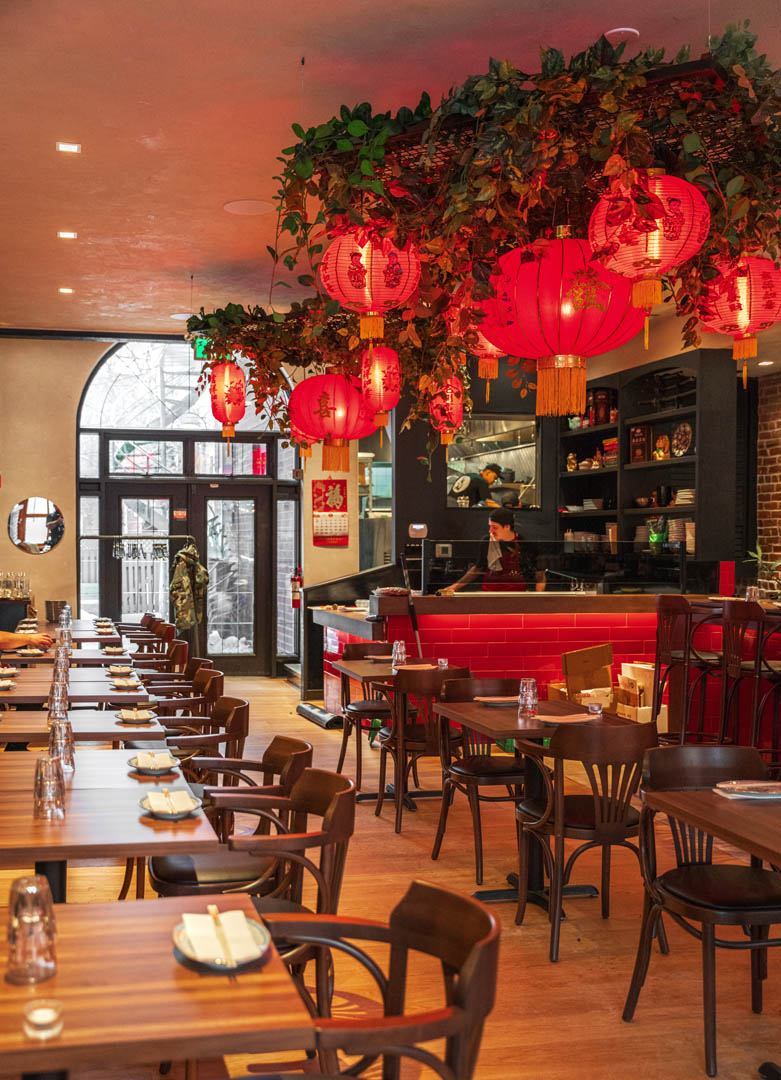
While staging, Lee already knew he wanted to open a Chinese restaurant, and his experiences only solidified his resolve to do so in Montreal. “That’s what I really wanted. That’s the point I was at in my career,” he says. “We’re getting fucking roasted all day. Long hours putting out amazing food that’s too expensive for guests from all over the world. The neighbours can’t come like they can in Montreal. It made me realize that I wanted to come back to Montreal, open a Montreal restaurant, that our hospitality is absolutely special and unique in its own way.”
Oncle Lee itself is unique in Montreal, which is home to comparatively few Chinese restaurants. Even after it was in the works, Lee himself felt unfamiliar with the ingredients and techniques of the cuisine that he wanted to make. He cites YouTube videos as an invaluable source of information for relearning Chinese cooking techniques such as stir-frying using a wok, but it was his family more than anything else that helped him prepare to open Oncle Lee. “I put the pressure on myself to go back to my roots,” he says. “I used to speak Mandarin super well, and now I’m losing it a little bit, so I’m working on that. I was really lucky that my dad worked in restaurants his whole life here—we actually just went to dim sum and we went in the back just to talk to his friends. He definitely helped me a lot. I feel Chinese now more than ever. I listen to Chinese music, old school Hong Kong rock, and I can bond with my dad over it. I’ve learned a bit of Cantonese. It’s been a really good year for my Asianness.”
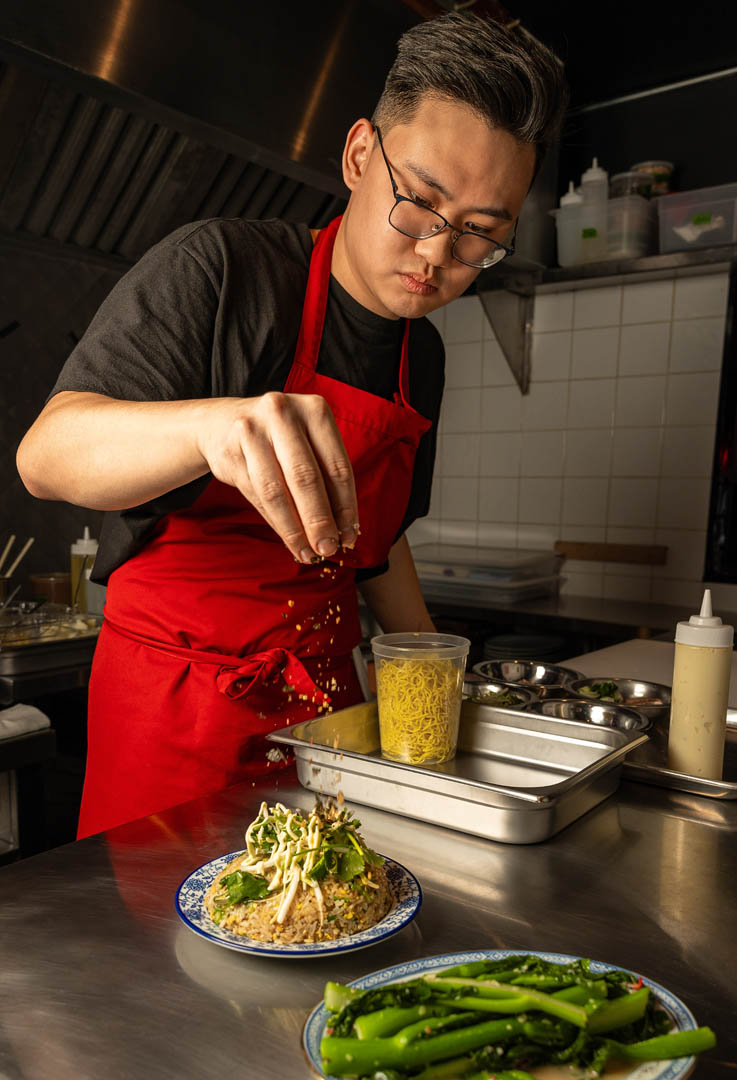
With a name inspired by the Chinese cultural practice of using the honorific “uncle” to address non-relations, Oncle Lee’s design is suitably homey. Behind its nondescript façade, the location on a busy stretch of Avenue Laurier Ouest is loaded with small details that add up to a boisterous aesthetic personality rarely seen among today’s sometimes sterile restaurant designs. Renovations to the 55-seat room were already partially completed when Lee took over the space. With its good bones—exposed-brick walls, built-in seating, and a workable kitchen footprint—Lee and his team’s bootstrapped, designerless approach to completing the space took less than a year from start to finish. By scouring stores in Montreal’s Chinatown for decor items (such as the red lanterns on the ceiling), serving dishes, and utensils, the finer details playfully hearken back to the Chinese restaurants Canadians are used to.
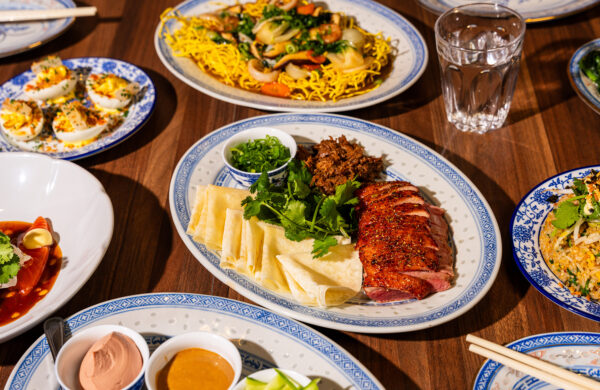
When pressed, Lee describes Oncle Lee as a “Montreal restaurant inspired by Chinese food.” The menu, while a definite homage to his Chinese roots, is difficult to pigeonhole and relies on flavours and techniques from a broad range of cuisines. For the spicy salmon on rice cake, recently replaced by an equally enticing spicy tuna variation, salmon is cooked sous vide with a gochujang marinade, mixed with cream cheese, mayo, pickled mustard seed, and lemon before it’s piped on top of a fried rice cake that lends a doubly crunchy and chewy base to the cotton-candy-like ethereality of the fish. The dou ban jiang beef tartare takes the template for the French bistro classic and turns it on its head. Served like a salad, the dish is completed by diners who are asked to mix together the roughly chopped beef with ingredients including edamame, avocado, pickled radish, and dou ban jiang and chili sauce mayo before enjoying it wrapped in baby gem lettuce and shiso leaves. The mushrooms with miso beurre blanc is the most definitively “French” dish on the menu, but it’s one that expertly incorporates umami-rich miso to add a pungent kick to its otherwise muted flavours.
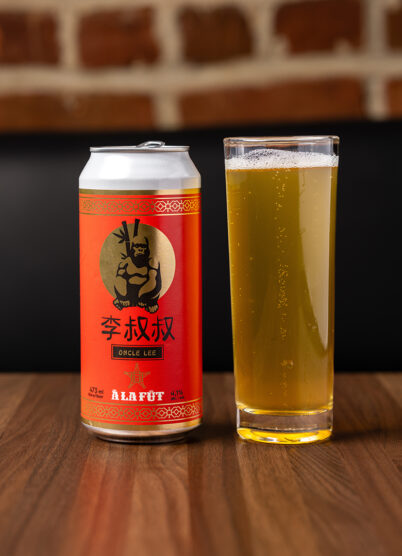
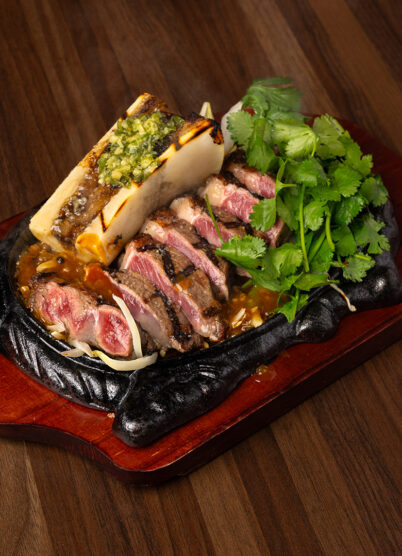
The bar program features drinks that are either inspired by or pair seamlessly with Chinese cuisine. The cocktail menu incorporates Asian ingredients such as five-spice, soju, and sesame; the wine list features bottles that complement the powerful flavours of the food; and a selection of local beer and cider as well as sake rounds out the offerings. At the end of your meal, if you’re lucky enough to know chef Lee, you may be asked to share a celebratory house shot made from soju, yuzu, pu’er tea, and Campari. Poured from an ornate Asian tea kettle, the cocktail’s mix of flavours and style of service appear entirely Chinese. The hospitality, however, that’s uniquely Montreal.
